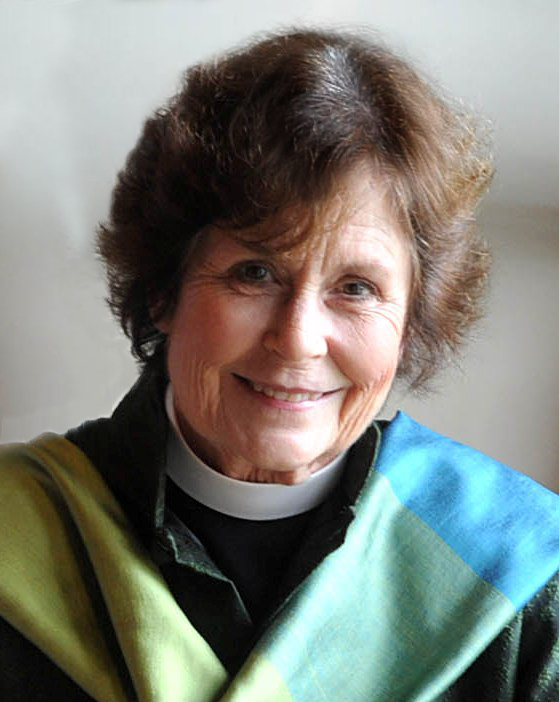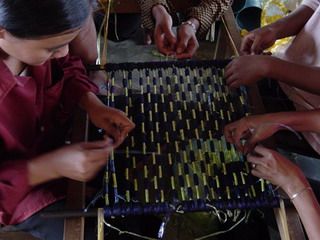Nashville-Based Online Store Helps Cambodian Women Take Greater Control of Their Lives
The Stung Treng Women's Development Center is a model of a self-sustaining business that is lifting an entire community from the ravages of poverty.
by Ann Walling* | print pdf |
The phone rings again. Another request for money. Worthy causes all, hunger, poverty, HIV/AIDS, troubled youth, day care for low-income families, bullied teens, exploited women, and the list goes on. Yes, I would like to contribute to all of them. The calls are never ending. But imagine for a moment that there is a way to help solve these problems without constant solicitation. Imagine a social entrepreneurship. A social entrepreneurship is a business locally owned and operated for the purpose of serving an impoverished community.
The Stung Treng Women's Development Center in Stung Treng, Cambodia, is a model of a self-sustaining business that is lifting an entire community from the ravages of poverty. The Stung Treng Women's Development Center grew out of the plight of impoverished young women in post-war Cambodia. Years of civil war and the genocide of the Khmer Rouge ended in 1990, leaving a desolate land and a dispirited people. The poverty was unspeakable. Everyone was hungry. Young girls were and are especially vulnerable. Some were sold as slaves to rich families. Some were sold to the sex trade. The daughters were the most valuable assets in impoverished families. When starvation lurked at the door, daughters could be sold.
Chantha Nguon not only survived the chaos of the war years but emerged from it with a passion for the vulnerable young women in the remote province of Stung Treng. In Cambodian families, boys were a treasure, girls a commodity. Consequently, boys were sent to school and given whatever opportunities the family could provide. Girls stayed home to care for the home and younger children and to provide income when the family became desperate. Girls grew into young women with no education, no skills, no societal value, and no self-esteem. An illiterate woman has only one thing of value to sell, her body. Chantha's heart was drawn to the desperation of these young women. Many of them contracted HIV/AIDS and returned home to die.
Chantha wanted to offer them a place to die with dignity, but funding was very difficult. In 2002 a new opportunity came to Chantha. A representative of an NGO, Partners for Development, and a representative of a small family foundation, the Allen Foundation, met Chantha in Stung Treng. They discovered that Chantha knew the ancient art of Cambodian silk weaving. This changed the future focus away from caring for HIV/AIDS patients to preventing AIDS in healthy young women by offering them an opportunity to earn a living wage. They would no longer be forced into the sex trade.
The Stung Treng Women's Development Center (SWDC) became a reality in 2002. The business of SWDC is weaving silk, Mekong Blue silk. The purpose of SWDC was to develop life skills that assist in breaking the cycle of poverty for vulnerable people, especially women, in Stung Treng Province. SWDC operates under the belief that helping women to take greater control over their own lives helps to improve the lot of their children, their families, and their communities.
Today SWDC is a social entrepreneurship that employs more than 80 weavers and a staff of approximately 25 other people from the local community. The women of SWDC own the business. They earn a living wage weaving silk under the Mekong Blue label. The silk is sold around the world, available in the U.S. at its online store www.bluesilk.org.
The weavers earn $75 to $150 per month. That is a significant income in a country where an elementary school teacher earns $40 and a medical doctor $200 a month. The sale of silk also supports many programs to serve the local community:
- literacy and health education,
- school sponsorships for local children, especially girls,
- vocational training in traditional weaving and sewing,
- vocational training in carpentry and building,
- vocational training in sericulture,
- kindergarten for the children of the workers of SWDC,
- employment at the weaving center,
- employment at the cafe and gallery, and
- employment in the sericulture project.
Chantha has noted there is a Cambodian saying, "Man is gold; woman is a skirt." The business of weaving and selling silk is making it possible to change that to "Man is gold; Woman is a diamond." At SWDC the belief is that women are emerging as the diamonds of Cambodian society through the social entrepreneurship model. The women earn a living wage and support the social programs of SWDC. After 10 years in business, the weavers have an earning power equivalent to or greater than most of the men. The girls are being educated so that they will become adults with the same opportunities as the men. Most families in Stung Treng Province have seven to nine children. The families who work at SWDC have one to two children. These families have lived in staggering poverty, but no more. The women of SWDC, through their social entrepreneurial enterprise, have given their children, their husbands, and their communities opportunities they never dreamed could be real.
Social entrepreneurship not only moves away from the need for charity but gives the women who own it dignity, self-respect, and their rightful place in society and gives the next generation an opportunity to be contributing members of contemporary Cambodian society.
*The Reverend Ann Walling, retired assistant rector of Nashville's St. David's Episcopal Church, is proud of her work with the Stung Treng Women's Development Center (SWDC) in Cambodia, founded by a grant from the Allen Foundation—a family foundation established by her mother—and other NGOs.

